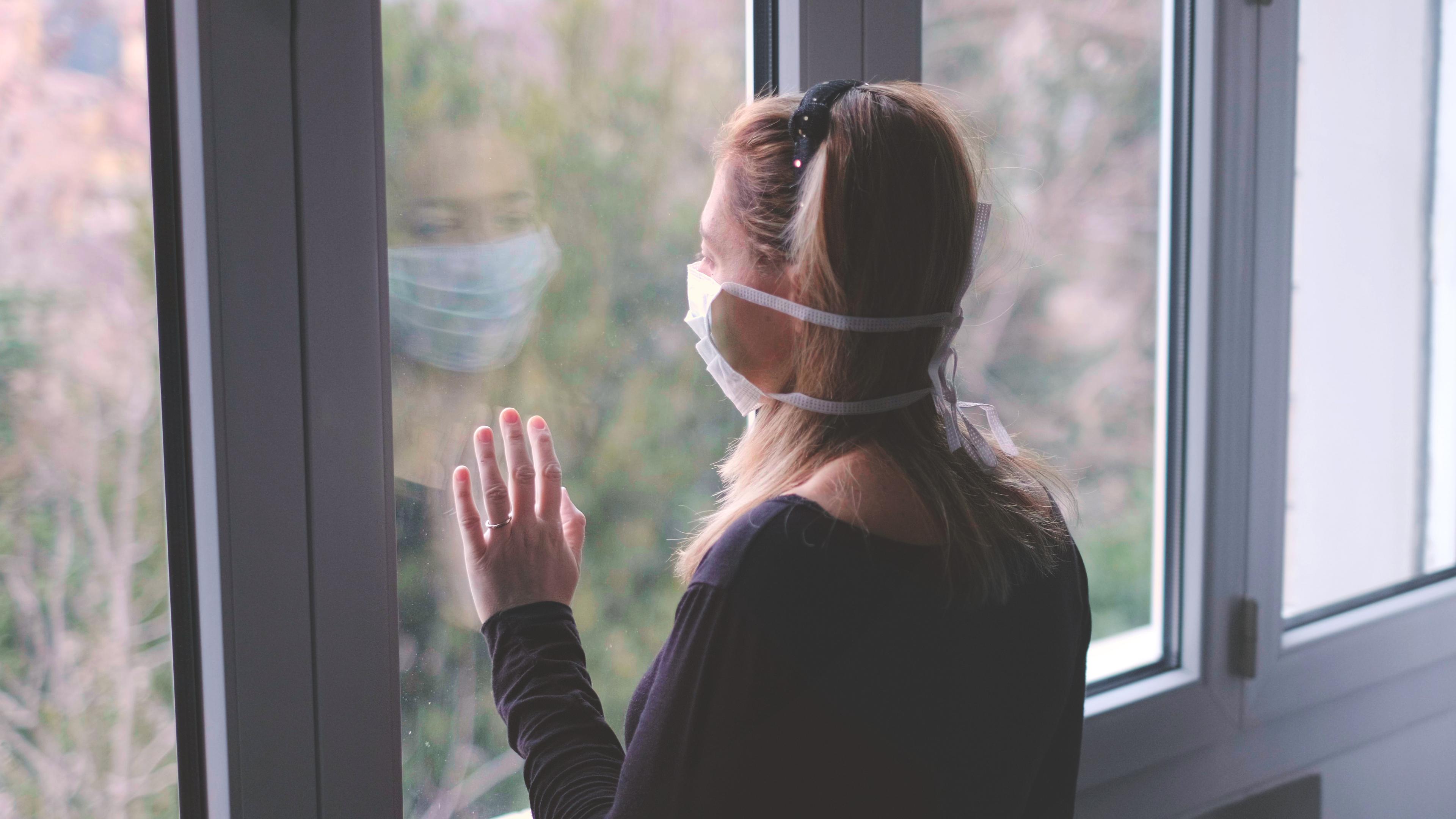Coronavirus: More worried about boredom, stress and anxiety than general health
- Published
- comments

People in lockdown are more worried about their mental wellbeing than their general health, an Office for National Statistics survey suggests., external
Just under two-thirds of 16- to 69-year-olds surveyed were most affected by boredom, stress and anxiety, and the inability to make plans.
And those aged over 70 were even less likely (6%) than the under-70s (13%) to say their overall health was affected.
Most of the under-70s did worry about their loved ones' health.
But, in general, those surveyed were considerably more worried about their friends and family's mental wellbeing.
And the over-70's were much more likely to be worried about their family's work (62%) being affected than their health (27%).
Living costs
Their own access to groceries, medication and other essentials was another major worry for the over-70s.
But the under-70s were more concerned about the impact on their work.
Just under three-quarters of all the people surveyed said the pandemic had reduced their household income.
Just over a third said they were using savings to cover their living costs.
And when asked how the pandemic was affecting their own wellbeing, more people expressed concern about the future than other, more immediate, worries such as being alone, strain on personal relationships or challenges working from home.
Key workers
More than 85% said they had enough information to protect themselves from the virus.
But only about half said they had enough information about the UK government's plan for dealing with it.
Although there were high levels of support for and compliance with lockdown measures, only 24% of those self-isolating for the past seven days had not left their home for the whole period.
The survey, conducted among households in England and Wales, excluded people staying in hospitals, care homes or other residential facilities.
The results were weighted to reflect the make-up of the population of Britain, including the proportions of key workers and people with health conditions.

A SIMPLE GUIDE: How do I protect myself?
AVOIDING CONTACT: The rules on self-isolation and exercise
HOPE AND LOSS: Your coronavirus stories
LOOK-UP TOOL: Check cases in your area
TESTING: Can I get tested for coronavirus?

The proportion of adults with high levels of anxiety fell from a high of 50% at the end of March to 37% between 17 and 27 April.
But a separate survey, by University College London, suggests it has risen again in the past week.
"Life-satisfaction ratings had been returning to pre-Covid-19 levels but this improvement has now halted," it says, linking this to the uncertainty created by speculation around exiting lockdown.
One in 12 of the 80,000 people surveyed by UCL was worried about their future and twice as many about their finances.
And these figures were even higher among those under the age of 60, with lower household incomes or a mental-health diagnosis.
Follow Rachel on Twitter, external